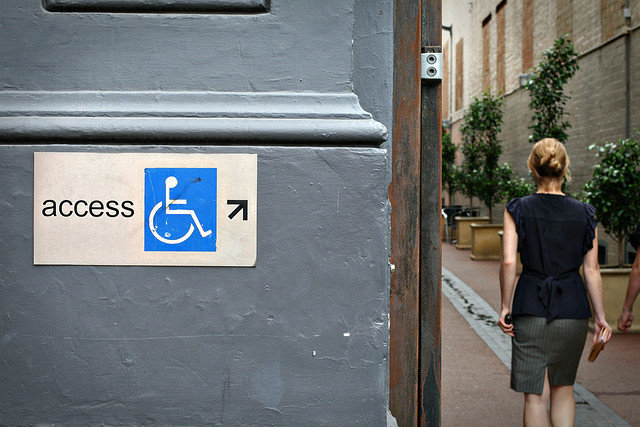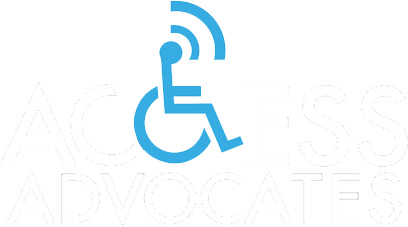 The Americans with Disabilities Act (ADA) enacted into law on January 26, 1990, requires that all places of public accommodation, accessed and open to the public, be compliant with their guidelines for accessibility to persons with disabilities.
The Americans with Disabilities Act (ADA) enacted into law on January 26, 1990, requires that all places of public accommodation, accessed and open to the public, be compliant with their guidelines for accessibility to persons with disabilities.
“ADA Fact: All places of public accommodation (i.e., accessed and open to the public) must be accessible to persons with disabilities.”
This means that employers cannot discriminate on the basis of disability and must provide some means of communication for filing complaints for those asserting they have been discriminated against on the basis of disability. The law also ensures that reasonable accommodation is made to allow for these grievances to be filed and heard.
Of course, the law goes much further than applying its standards to the workplace. It also applies to any area open to the public. This includes theaters, shopping areas, doctor’s offices, court rooms, government offices, restrooms in public areas and areas of apartment complexes accessed by the public. Generally, any obstruction to a person with a disability must be removed. And, for buildings constructed after the 1990 Act, they must be fully compliant with requirements of the ADA. Those buildings constructed before the law was enacted must have barriers to access removed in cases in which it is technically feasible and readily achievable without excessive difficulty and expense.
In the case of apartment complexes, the areas accessible to the public must also be accessible to persons with disabilities; however, interior residences are not required to be modified but can be modified by those residing in the dwelling.
In addition, the requirement of reasonable accommodations extends to providing necessary alternatives easily provided and the adjustment of standard policy so that people with disabilities are not obstructed from use of programs, services and activities of public areas. For instance, you cannot be refused from riding public transportation if you must have a service dog accompany you. If a staff meeting is held in a location not accessible to wheelchairs, it is reasonable to change the location to a place that is accessible. If items in a store are too high on the shelf, it is acceptable for an employee to retrieve it for you.
ADA compliance has extended to many areas of public life, including such everyday conveniences as ATM machines. This shows that people with disabilities are more and more able to participate in activities in the community, allowing for more inclusion and pleasurable interaction in social and business goings-on. This, of course, makes for a more complete culture and society and is greatly relevant and necessary for a healthy society.
Please, contact us if you have encountered an obstruction to a public space because you could not access it due to your disability.
Photo credit: NathanealB/Flickr
